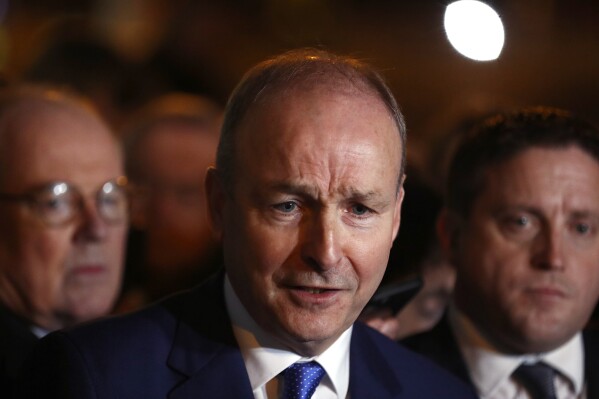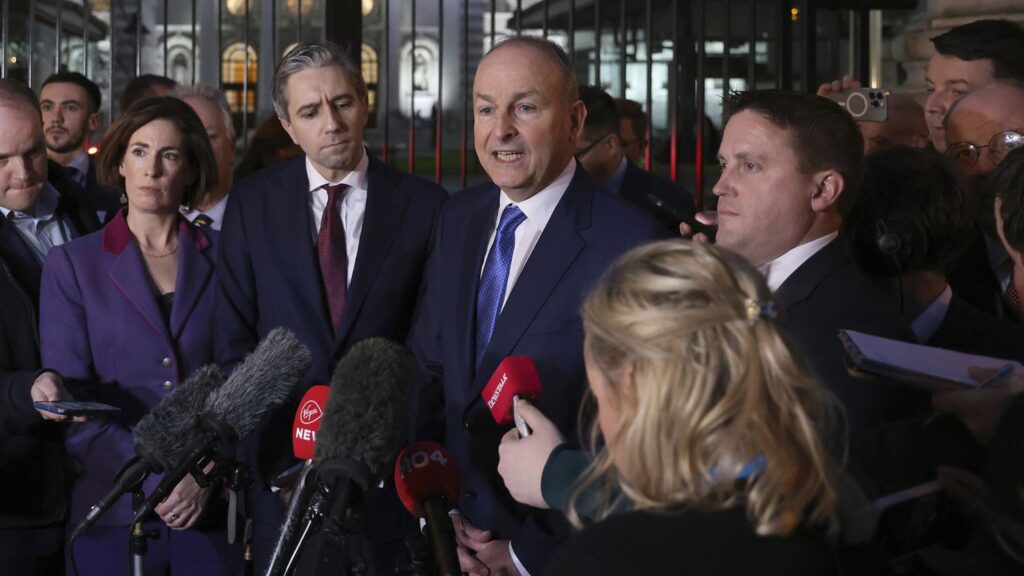Fianna Fáil leader Micheál Martin has been elected as Ireland’s prime minister after a tense two-day battle with opposition leaders. However, the ordeal highlighted significant cracks in his coalition, raising concerns about its stability.

Sinn Féin leader Mary Lou McDonald emerged strengthened after Martin conceded defeat in the first major confrontation of his government’s five-year term. McDonald’s party demanded a promise from Martin that lawmakers from the coalition’s smaller third component, the Regional Independents, would not be allowed to compete for speaking time with Sinn Féin.
Martin eventually agreed to the proposal after behind-the-scenes negotiations. McDonald praised the decision, noting that it acknowledges the need for clear differentiation between government and opposition roles.
“The government has now finally acknowledged that no TD can be both in government and opposition at the same time,” McDonald said in parliament, calling it a logical U-turn.
Despite this, Martin’s coalition continues to rely on the Regional Independents, whose support is crucial to maintaining a parliamentary majority. Under current rules, these independents are classified as opposition, but many have been appointed to ministerial roles within the government.
A new parliamentary committee will revise the operating rules for the Dáil Éireann to reflect the government’s unique structure. The revised rules will address how the Regional Independents, a group that includes many rural conservatives, are allotted speaking time in the legislative chamber.

The coalition’s stability depends heavily on the support of the Regional Independents. Following November’s election, Martin’s Fianna Fáil won 48 seats, while his partner Fine Gael secured 38, just short of a majority in the 174-seat Dáil. Rather than seek a left-wing alliance, Martin turned to rural independents, whose technical groups allow them to question government ministers.
However, Sinn Féin has targeted the coalition’s dependence on the Regional Independents, particularly focusing on influential member Michael Lowry. Lowry, a former government minister expelled over corruption allegations, has remained a prominent figure in North Tipperary despite the accusations.
Sinn Féin’s deputy leader Pearse Doherty criticized Lowry’s role in government formation, launching fresh allegations against him. He questioned why Martin, who once condemned Lowry, was now relying on him to maintain coalition support.
“If Sinn Féin can undermine Martin’s coalition, McDonald could regain her position as Taoiseach-in-waiting, a status she held before the formation of this government,” Doherty said. “Our day will come.”



